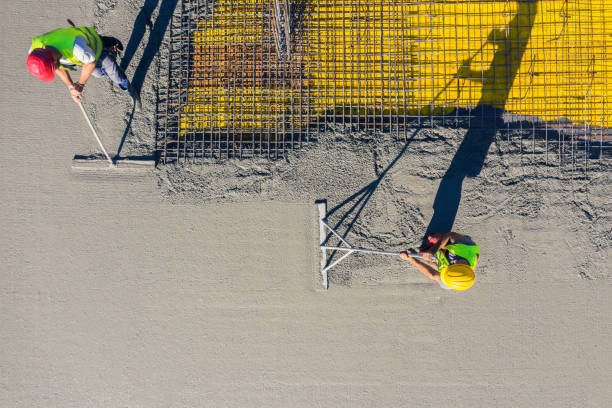
Introduction
When it comes to building a sturdy and stable home, the foundation is a critical element. Residential foundations provide the base upon which the entire structure stands, ensuring safety, durability, and structural integrity. There are several types of residential foundations, each with its own set of advantages and considerations. In this blog, we will explore the different types of residential foundations, helping you understand their distinct features and when to use them.
- Slab-On-Grade Foundation
A slab-on-grade foundation, also known as a monolithic foundation, is one of the most common types in residential construction. It involves pouring a single, thick layer of concrete directly onto the ground, serving as both the foundation and the floor of the house. This type of foundation is ideal for areas with mild climates, as it lacks a crawl space or basement. It is cost-effective and relatively easy to install, making it a popular choice for many homeowners.
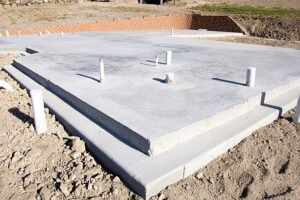
Advantages:
Cost-effective and quick to install.
- Picture of a concrete slab for a house. Taken during the early morning.Suitable for areas with high water tables or stable soil conditions.
- Minimal maintenance required.
Considerations:
- Limited insulation, which can result in higher energy costs in extreme climates.
- Not suitable for areas prone to flooding or severe temperature fluctuations.
- Crawl Space Foundation
Crawl space foundations feature a raised, enclosed space beneath the house. This type of foundation is constructed using piers or walls to support the house above the ground. The crawl space offers access to utilities, insulation, and facilitates ventilation, reducing the risk of moisture problems. Crawl space foundations are often used in regions with varying climate conditions.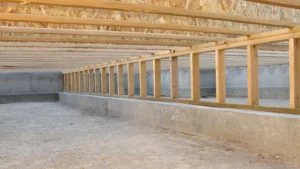
Advantages:
- Access to utilities and easy maintenance.
- Enhanced ventilation and insulation options.
- Suitable for areas with high humidity and flood-prone regions.
Considerations:
- Requires regular inspections to prevent moisture-related issues.
- Higher initial construction costs compared to slab-on-grade foundations.
- Full Basement Foundation
A full basement foundation provides a complete underground living space beneath the house. It is a versatile option, popular in many regions, offering both additional living space and storage. The foundation walls are typically made of concrete or masonry and extend below the frost line, ensuring stability and preventing soil-related problems.
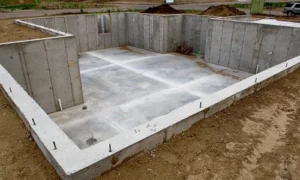
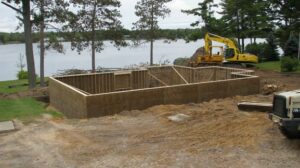
Advantages:
- Offers additional living space and storage options.
- Enhanced insulation and energy efficiency.
- Resistant to temperature fluctuations.
Considerations:
- Higher construction costs and longer building time.
- May require waterproofing measures to prevent moisture infiltration.
- Pile and Pier Foundations
Pile and pier foundations are suitable for homes built in areas with unstable or weak soil conditions, such as coastal regions and swamps. This type of foundation uses vertical columns or concrete piers that penetrate deep into the ground to support the weight of the house. Pile and pier foundations are commonly used for beachfront properties and homes in areas with a high water table.
Advantages:
- Stability in unstable soil conditions.
- Resistance to flood and moisture-related issues.
- Minimal ground disturbance during construction.
Considerations:
- Can be expensive due to the need for specialized engineering.
- Maintenance and inspections may be necessary to ensure structural integrity.
Conclusion
Selecting the right residential foundation type is a crucial decision in the home-building process. The choice depends on factors such as the local climate, soil conditions, budget, and the desired living space. Understanding the different types of residential foundations and their respective advantages and considerations can help homeowners make informed decisions and ensure the long-term structural integrity of their homes. Whether you opt for a slab-on-grade, crawl space, full basement, or pile and pier foundation, a solid foundation is the cornerstone of a safe and durable home.



